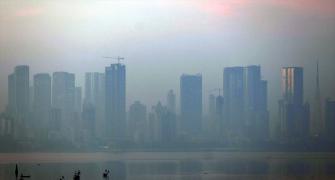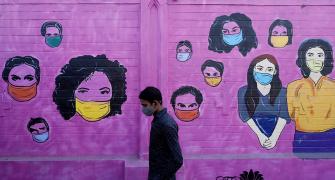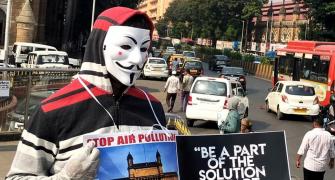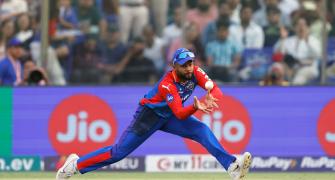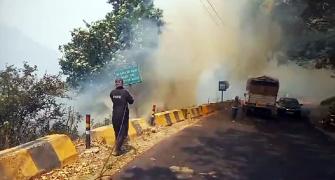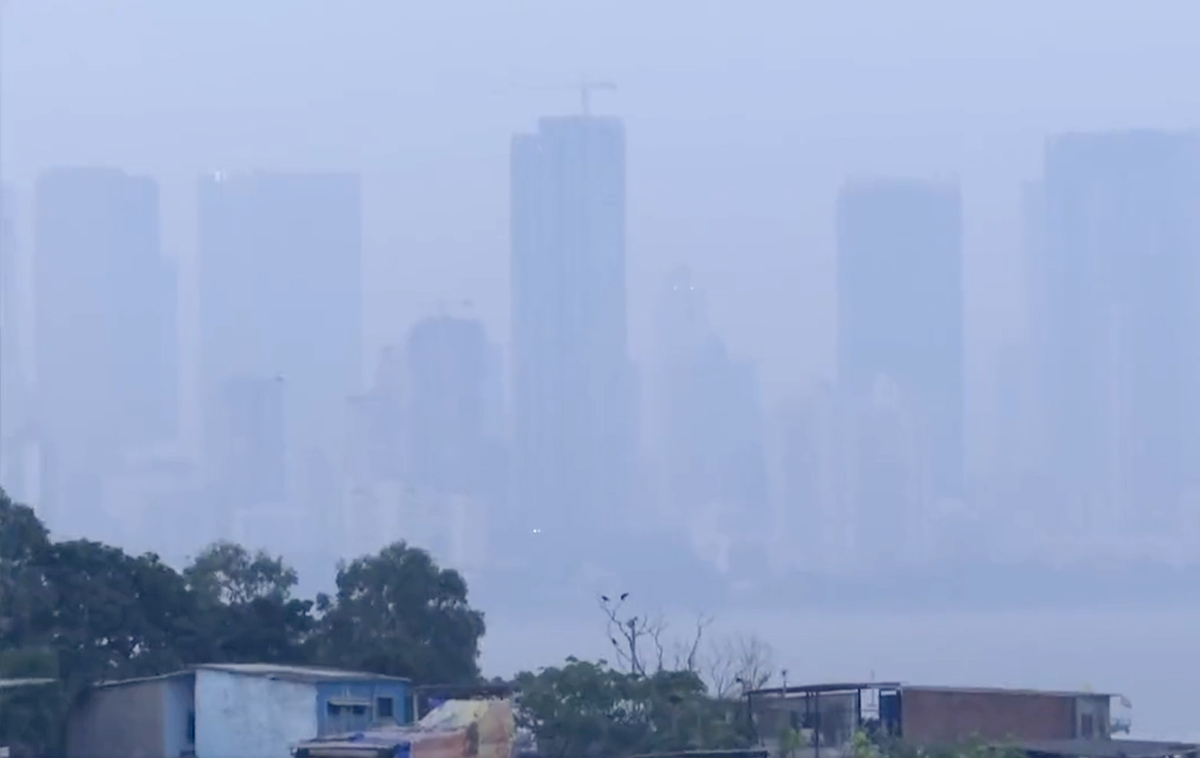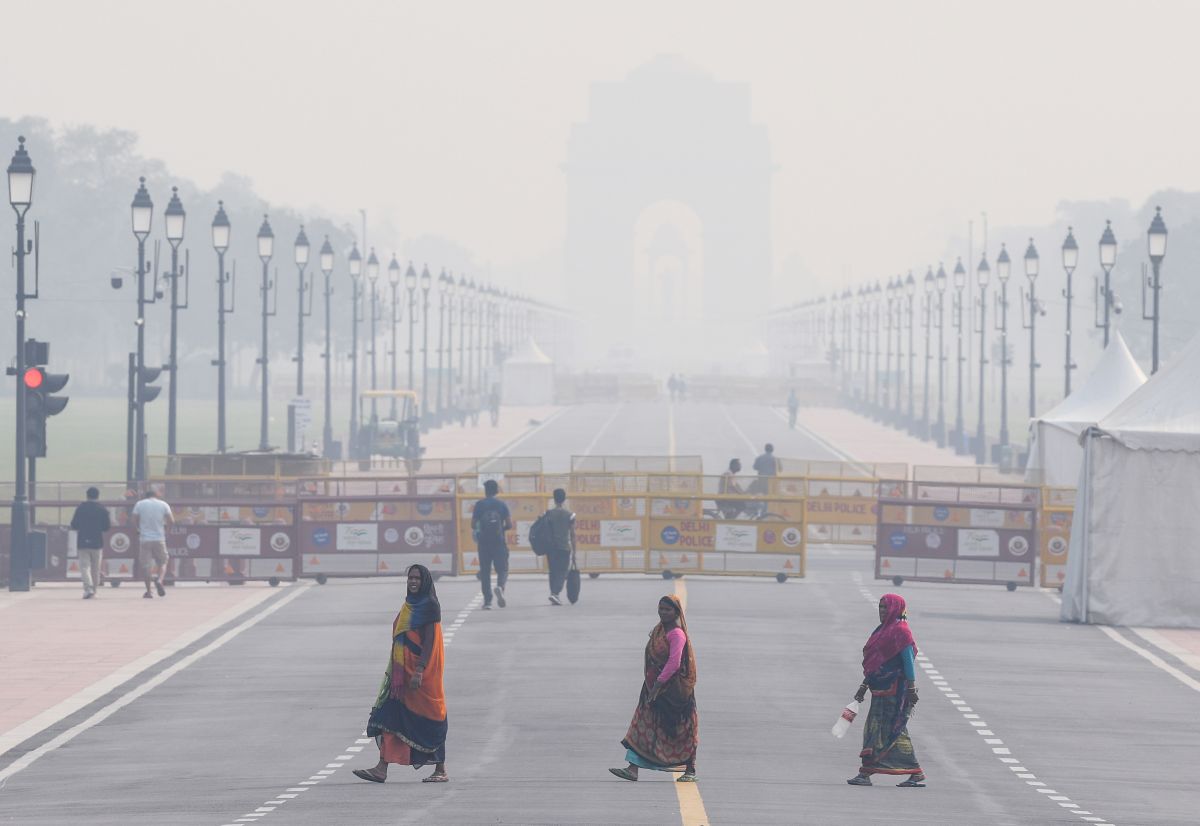'If you keep on irritating the body by allowing all kinds of pollutants to get into it, the body cells are going to get irritated and cancer will come.'

Dr Viswanathan Mohan, chairman of the Madras Diabetes Research Foundation, and a diabetologist with four decades plus experience in his field, including research, is one of the investigators in a ground-breaking study, the details of which came out in October in the London-published BMJ Open Diabetes Research & Care, that links heightened air pollution to the onset of type 2 diabetes.
In Part I of his interview to Rediff.com's Vaihayasi Pande Daniel, Dr Mohan explained the connection between the disease and particulate matter in the air and suggested precautions.
Dr Mohan suggests further precautions in relation to air pollution and discusses the effects of any kind of pollution in the concluding segment of the interview.
- Part I of the Interview: 'Air Pollution Leads To Type 2 Diabetes'
What about gadgets that control the quality of air inside your home, like maybe an air purifier or air conditioners?
Yes, there is equipment that sucks out a lot of pollutants and particulate matter. You rightly said about room purifiers and air conditioners.
A ventilator is also a good idea. Ventilators are in toilets.
If you just put it on, the exhaust fan takes away (fumes), because it pulls it to the outside.
Similarly, if you just have an exhaust fan in the kitchen, for example, it will take away pollutants in a home.
You do, for instance, a homam (worship with fire) in a house -- you're doing a puja, and then you're burning a lot of things.
There is so much smoke... It's supposed to be a purification in the spiritual sense. But then the smoke can also be a pollutant if you don't keep all the doors, windows open.
I think, people have to use practical sense to reduce (pollutants in the home) and know what is a risk factor.

You mentioned about rural areas in India having less diabetes because they don't have the urban habits. Are there any other factors, apart from less pollution, that makes rural folks less likely candidates for diabetes?
Nothing unusual. They are thinner. They have less obesity, and normally do more physical activity. They don't have cars and roads.
Then because of their lower socio-economic status, they mostly eat home food, rather than at restaurants, five stars, junk food. And so, in the rural areas, about 5 to 10 years ago, you could have said that there are very low rates of prevalence of diabetes.
But today, they are rapidly changing because -- if you take Kerala, for example -- where is urban, where is rural? The whole of Kerala is becoming urbanised -- there's no rural at all. The rural areas are fast becoming urban.
Number two, they are also becoming richer. As a country develops, the poor can afford more too.
So, what do they do? They buy a car; they buy a scooter.
If they are a farmer, where once they would plow the field and do the work manually, now they're sitting on a tractor, because they can get a loan, microfinance.
Their physical activity is going down. Their income has gone up. Their food habits are changing.
They are also now watching television and they are also watching the World Cup. Whatever we are doing, they're also doing now.
So, they are in no way different from us. Therefore, their rates are also going up very high.
Very soon, they will have pollution. Because what is happening in cities is going to them too.
They are also adopting the urban lifestyle. Although now we are talking about these urban-rural differences, they are fast disappearing.
Lessons we are learning here in the cities, we must be applied to rural areas too.
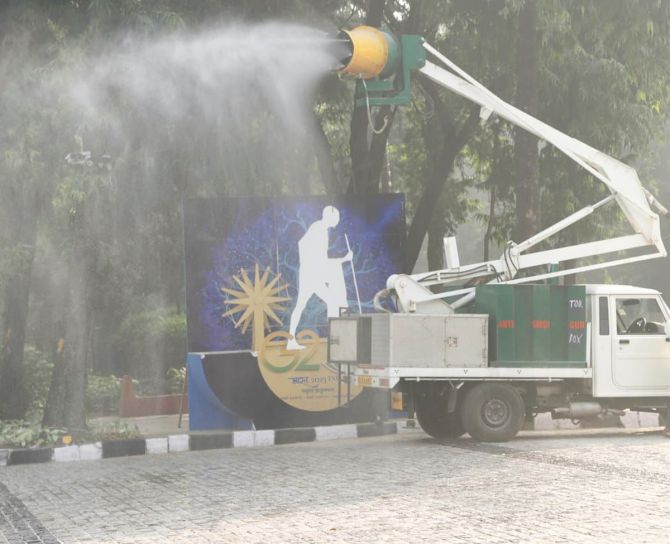
It would seem a no brainer that if air pollution can cause type 2 diabetes, then any kind of pollution, food impurities, pesticides, bad water, contaminated soil can have the same effect and be endocrine disruptors?
Absolutely. It need not be in the air. It can be in the soil, in the food, in the water.
Pesticides have been very well shown as an independent endocrine disruptor.
There are an equal number of studies regarding pesticides, arsenic... so many (dangerous) things are there in pesticides.
Arsenic in turmeric?
Yes, exactly. In rice. Arsenic in rice is maybe another cause for diabetes.
There is a theory that rice causes diabetes not just due to its glucose content, sugar content, carbohydrate content, but it is the arsenic in the rice that is responsible.
Lot of literature on that -- if you Google you will find.
Air pollution is just one thing we're talking about. Pesticides work through a completely different mechanism, but a similar mechanism.
Any kind of pollution is bad. Water pollution is also bad -- it has all kinds of impurities that are going to get into the body one way or the other.

IMAGE: Dr Viswanathan Mohan.
You mentioned a connection between hypertension and air pollution. So, if air pollution is an endocrine disruptor, what other parts of the body can it affect?
It can lead to coronary artery disease. It's not just an endocrine disruptor, it disrupts everything.
It disrupts the some of the pathways, that's what leads to hypertension.
If it produces inflammation in the arteries, it can lead to blocks in the arteries, leading to heart attacks and strokes.
It can produce cancer. If you keep on irritating the body by allowing all kinds of pollutants to get into it, the body cells are going to get irritated and cancer will come. That's very well known.
So, it can lead to myriad problems. They're all related. The body is united. Any disease can be triggered by pollutants.
How can a mother, say living in Delhi, where the pollution right now is really, really high, protect her child?
Well, first of all, send them in safer kind of transport where they're not fully exposed to pollutants. And if you can, avoid certain parts of the city, which are very badly polluted, and go through other parts.
Wearing a mask is a very simple (solution). Just wear a mask when needed. You don't have to wear it all the time.
I've seen people in airports, even today, although there is no COVID-19, come onto the plane, or when they're standing in a queue, only at that time they put on a mask. And when you are away from people, you don't need to.
So, it's about common sense when it comes to taking the precautions as and when needed.
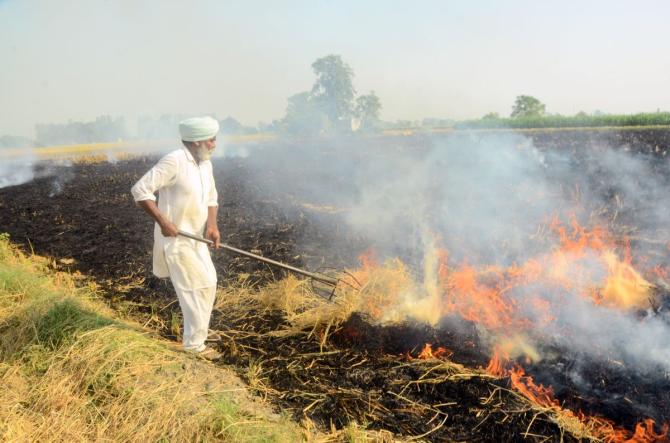
When you talk about air pollution in this study you refer to PM 2.5 particles. Who is the villain when it comes to producing these particles?
It can be anything. No, there is not one particular source. It's a combination.
One of the main things in Delhi is because of the stubble burning by farmers in Haryana and Punjab. Acres and acres of land are getting burned.
In winter they keep doing that when they want to change the crops...
But they must have been doing this for centuries. Why is it suddenly now a problem?
Because of the crowding in the cities. Earlier the population was distributed.
Probably there is an increase in the cultivation or something too. Maybe more people are doing it (burning of stubble).
It is a question of population, number one, and number two, crowding.
The other thing, that makes it worse, is that on top of that you have traffic.
If you just go back 50 years and looked at Delhi or Chennai or Mumbai -- it would be an occasional car going on the road.
Today there are lakhs and lakhs of cars. All that adds fuel to the fire, literally.
We have to evolve as population increases and pollution and the number of vehicles increases.
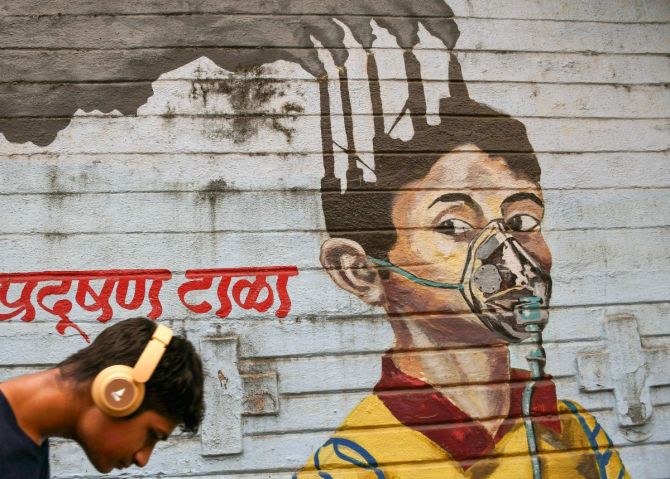
Every day we're reading about the rising air pollution and details of AQI levels are being released. Are these readings accurate or could they actually be higher?
The machines are fairly accurate now. Earlier we didn't have all those machines.
Today even handheld machines are able to tell you the levels.
You can take an average of four or five readings at different times of the day. It will vary.
Early morning it may not be much. By evening it may become worse.
Different seasons it will vary. In winter it may be more.
Pollution is much less in Chennai -- even in the paper we have shown that -- about one-third of Delhi.
You can't see that kind of obvious pollution that we see in Delhi. Nor in Mumbai.
But I brought up Chennai as a classic example, because there's a festival called Bhogi, the day before Pongal.
On that particular day, for centuries, Tamil people burn all their old clothes, their books, their papers, whatever they can burn, they'll burn.
And the whole of Chennai would become totally polluted on Bhogi. I would skip my walk.
There was just too much pollution. And by evening or night or the next day, it would kind of settle. But for 24 hours through the whole city, you couldn't even see – there was that much of smoke and fog.
Diwali it is the same thing. They keep on with the crackers. So much pollution, noise pollution and other kinds of pollution.
Corporation commissioners and health officials then said: 'No burning during Bhogi. Let's stop this habit'. And to a large extent it got controlled. I won't say it's completely gone. And maybe in the villages, they still do it. But in many parts of the city, it has been banned. And pollution did come down visibly.
On Diwali we say no crackers after 10 or 11 o'clock, so noise pollution also comes down. Also, the smoke. Diwali is another time when there's so much of pollution.
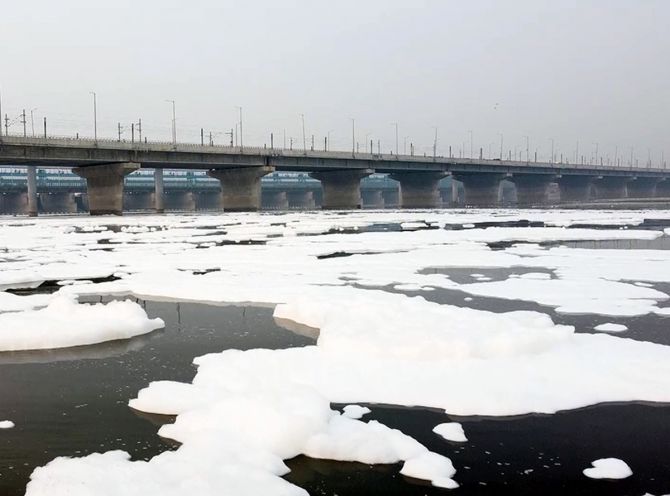
So many studies suggest that the day you stop smoking cigarettes, you can rewind a lot of the damage done in your body. Does that also apply to diabetes and air pollution?
We have not done a randomised clinical trial. What we've done is only an observational study.
We'll have to see whether it really comes down or whether part of this can be reversed or the damage already done cannot be reversed. We don't know.
For example, during COVID-19, diabetes incidence went up. Part of it was due to steroid use.
It really knocked out all the beta cells (in the pancreas), and then they developed permanent diabetes.
So, we'll have to study that and see in greater detail. Some of it will have to be done as experimental studies to see what happens (ie the effects of pollution).
Feature Presentation: Rajesh Alva/Rediff.com

